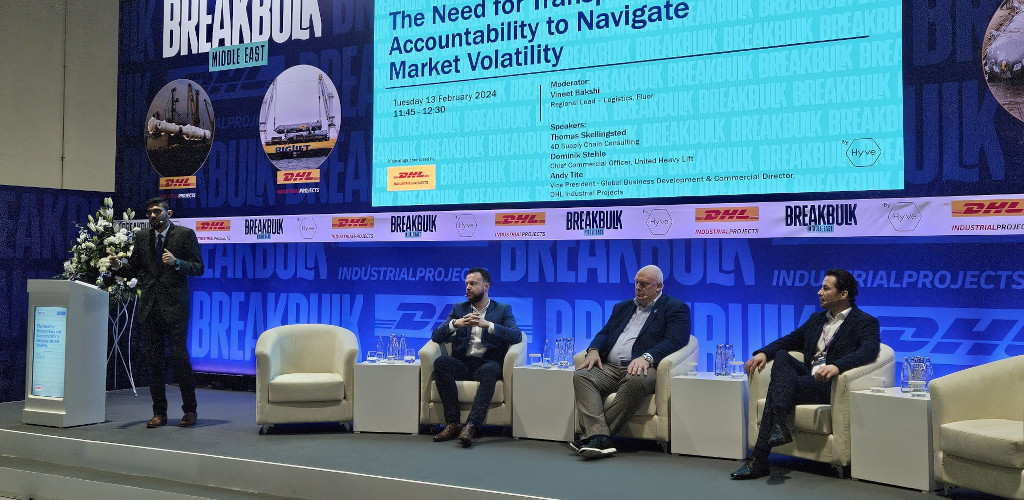Carriers Ask for Understanding From EPCs on Delay Costs
 By Carly Fields
By Carly Fields
Multipurpose vessel capacity is being artificially decreased by prolonged transit times to avoid the volatile Red Sea area and the drought-hit Panama Canal and the impact on utilization will ripple through the industry.
Fleet utilization at United Heavy Lift was 60 percent at the start of the year, but the longer transits have increased utilization to 80 percent without booking any more cargo, Dominik Stehle, the company’s chief commercial officer, told attendees at Breakbulk Middle East in Dubai.
Panelist Andy Tite, vice president of global business development and commercial director at DHL Industrial Projects, described the current sea freight market as “a dynamic situation."
He asked, “how can forwarders plan? How do we speak to EPCs to prepare them for delays? We don’t know how the situation will progress.”
“We need to interact with asset owners and our clients,” Tite said. “Ultimately it is something that has been imposed on all of us, so it is something that we all need to take responsibility for.”
He added that no clients want to see a rise in costs deviating from their planned budget. “It is difficult to bring these impacts to our client, but it is an obligation. Here, relationships really do matter.”
From a carrier perspective the disruption is adding to fuel costs and leading to consequential loss. Stehle said he spends a lot of time explaining the situation to clients. The majority are not too concerned about the situation – unless it costs them money.
“At the end of the day we are not making more money with the extended transits,” he said. “We just ask to be compensated for the addition hire and the fuel consumption. We are trying to find ways to make it more reasonable, but we will not put our vessels, crew, or cargo at risk.”
Thomas Skellingsted, president of 4D Supply Chain Consulting, added another challenge to the mix: rising port congestion, because all ships are taking longer to get to Europe or the U.S.
He called for transparency on freight rates to ease the pain for shippers. “There is no standard; we have high and low rates. We need to work as a team because the rates that we have negotiated were some years ago.”
Stehle countered that stakeholders need to be understanding of the whole situation, else carriers might be driven out of business due to increased costs.
Looking ahead, Tite suggested that EPCs start building contingency in to mitigate these sorts of risks. “Volatility is not new. With the right governance and controls in place we will have an element of mitigation so that when things happen, we can be more robust.”
Join the conversation at Breakbulk Europe 2024 on 21-23 May at Rotterdam Ahoy.


